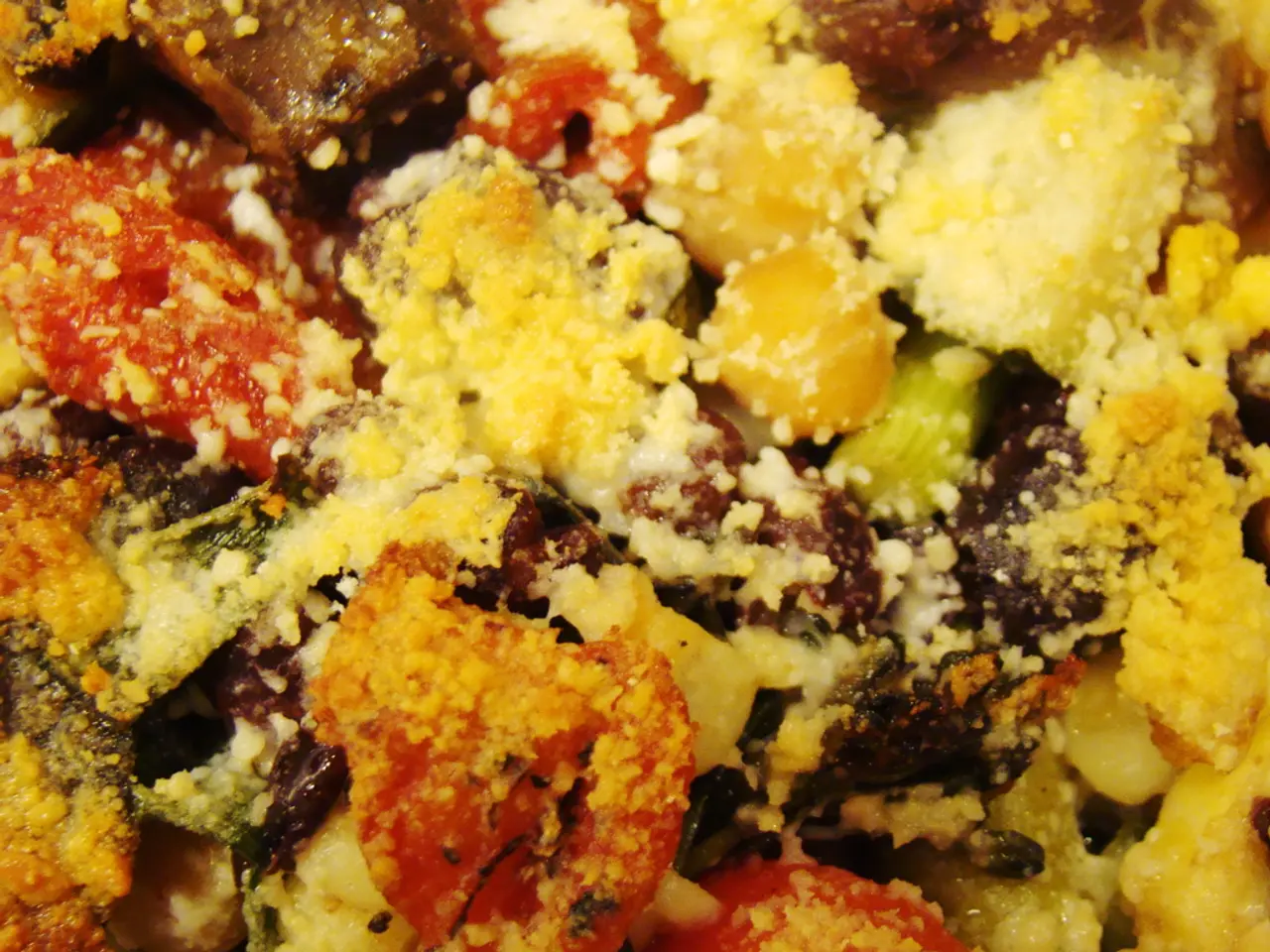A Look into the Pescatarian Diet: Meal Plans Centering on Seafood
A pescatarian diet - a diet that excludes meat and poultry but includes fish and seafood - offers several advantages over vegetarian and vegan diets. Here's a closer look at the key benefits of this dietary approach.
Rich Source of Omega-3 Fatty Acids
One of the primary advantages of a pescatarian diet is its rich source of omega-3 fatty acids. Fish and seafood are packed with these essential fats, which are linked to lower risks of heart disease, reduced inflammation, and improved brain health. Vegetarian and vegan diets typically lack direct sources of omega-3s, relying instead on plant-based precursors that are less efficiently converted in the body.
Lower Risk of Heart Disease and Type 2 Diabetes
Incorporating fish into your diet can help lower cardiovascular risks and maintain a healthy weight, while vegetarian and vegan diets also have heart health benefits but may require more careful nutrient planning to avoid deficiencies.
More Complete Protein
Fish provides high-quality, complete protein with all essential amino acids. Vegetarian and vegan diets need to combine plant sources to achieve similarly complete protein profiles, which can sometimes lead to risks of muscle loss, weak immune system, and sluggish metabolism seen in poorly planned vegetarian diets.
Better Vitamin B12 Status
Vitamin B12 is naturally found in animal foods, especially fish, and is often deficient in strict vegetarians and vegans without supplementation. Pescatarians have a lower risk of B12 deficiency, which is important for energy, nerve function, and blood health.
Greater Dietary Variety and Satisfaction
Pescatarian diets allow more diverse food choices, combining plant foods with fish, which some find easier to maintain and nutritionally rewarding than fully vegan or vegetarian diets.
While vegetarian and vegan diets offer excellent sources of antioxidants, fiber, and phytochemicals, they require careful planning to avoid deficiencies in protein, B12, iron, and omega-3s. Pescatarian diets can strike a balance by providing animal-based nutrients via fish while still being predominantly plant-focused, potentially capturing health benefits of both approaches.
The pescatarian diet includes fish, seafood, dairy, eggs, honey, fruits, vegetables, grains, legumes, nuts, and seeds. This dietary choice can help you avoid the risks associated with regularly eating red meat, which can raise your risk of heart disease. Eliminating red meat is a great way to boost heart health.
It's important to note that a pescatarian diet doesn't automatically mean a healthy diet. Processed foods, even those labelled as pescatarian-friendly, tend to be higher in calories, unhealthy fats, and sugar, and are low in vitamins and minerals. Fresh produce, which may be incorporated more into a pescatarian diet, contains antioxidants that lower your risk of heart disease.
Fish, particularly, is one of the best sources of omega-3 fats EPA and DHA. A pesco-Mediterranean diet, focused on fish and plant-based foods, is ideal for optimizing cardiovascular health. However, it's crucial to remember that getting protein from meats high in saturated fat (like red meat) brings health risks.
In summary, the pescatarian diet offers advantages in omega-3 fatty acids, complete protein, and vitamin B12 availability, along with cardiovascular benefits and greater dietary flexibility compared to vegetarian and vegan diets. This dietary choice can be a balanced approach to reap the benefits of both animal- and plant-based foods.
Read also:
- Adolescent Joint Discomfort: Origins, Indicators, and Remedies
- Exploring Treatment Methods for Bladder Cancer: A Comprehensive Look
- Consequences of uterine injury post-abortion: What are common occurrences?
- Experiencing pain levels associated with bladder sling surgery: Insights on perioperative, postoperative, and beyond pain management






